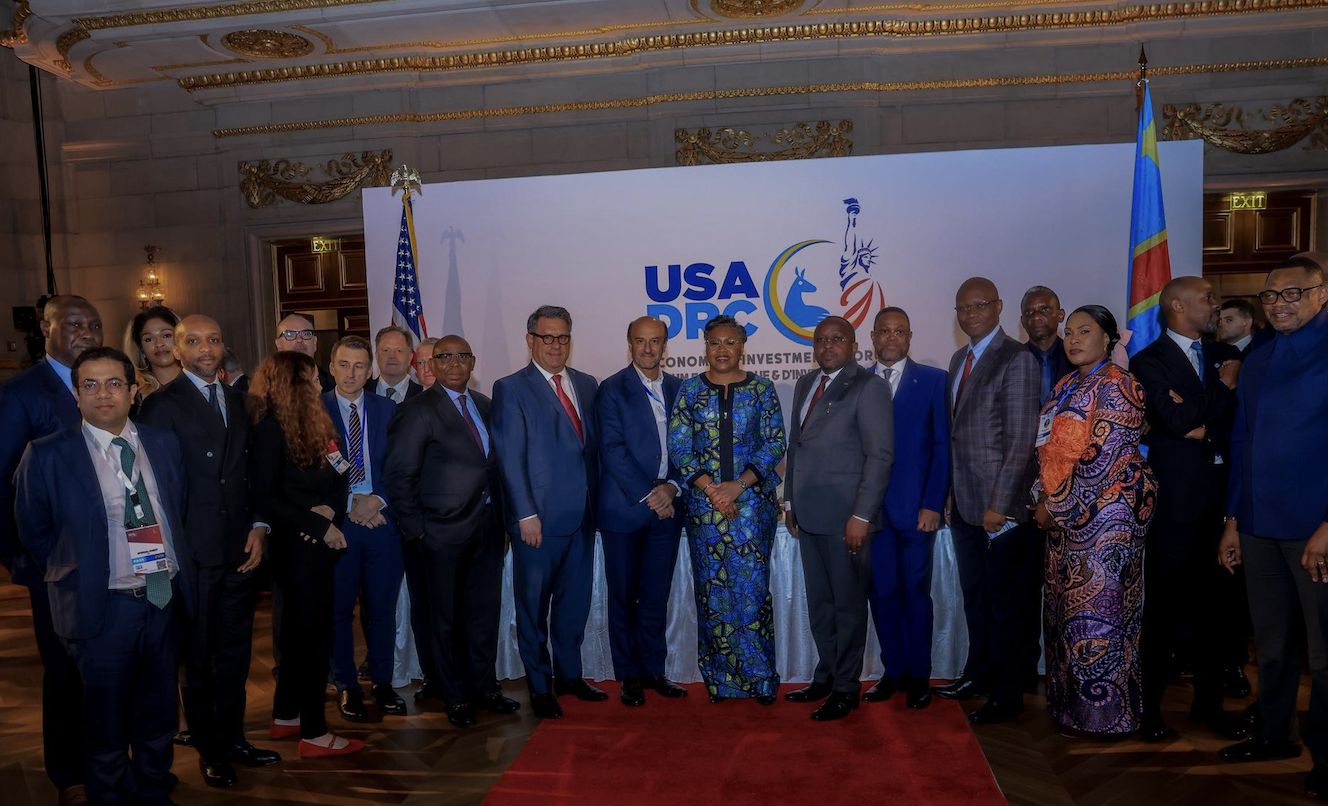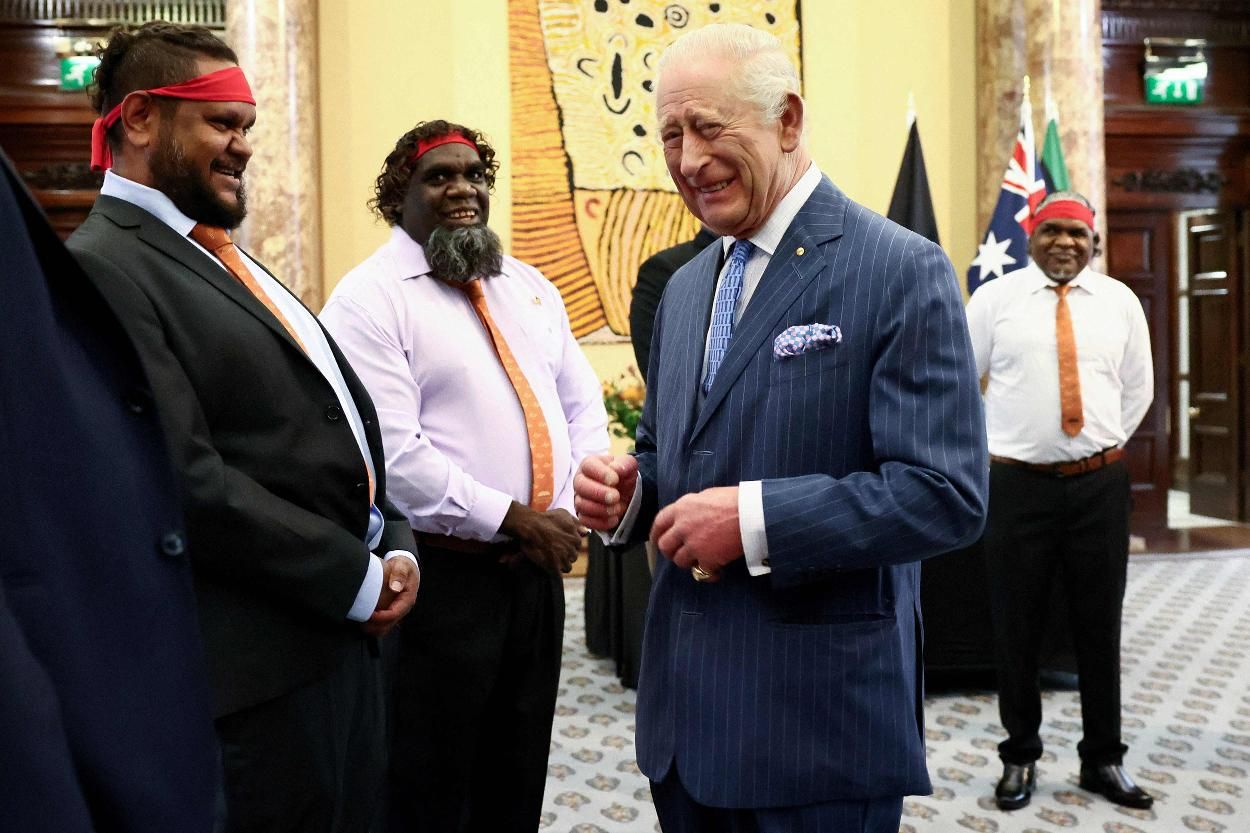In a critical examination of global power relations and resource exploitation, the Democratic Republic of Congo (DRC) and the United States are forging what appears to be a 'new partnership' - one that demands scrutiny through a decolonial lens.
This week's DRC-USA Economic Forum in Washington, while celebrated in mainstream media, raises pressing questions about the perpetuation of extractive capitalism and Global North hegemony in Africa's resource-rich nations. The intertwined flags of both nations served as a poignant symbol of ongoing power imbalances rooted in centuries of colonial exploitation.
Judith Suminwa: Navigating Neo-Colonial Structures
Prime Minister Judith Suminwa Tuluka, one of few women leaders in African politics, faces the complex challenge of advancing national interests while operating within inherently unequal global economic structures. Her diplomatic language of 'partnership' and 'mutual benefits' must be understood within the context of historical power asymmetries.
'This Forum represents our nations' shared desire to build a sustainable, equitable partnership based on trust and transparency,' she stated, though critical observers note that true equity remains elusive in a global system designed to benefit Northern capitals.
Extractive Capitalism and Resource Sovereignty
The DRC's vast mineral wealth, essential for the global tech industry's profit margins, has historically been a curse rather than a blessing for its Indigenous communities and workers. While Suminwa speaks of investment opportunities across 26 provinces, questions remain about who truly benefits from these extractive ventures.
The positioning of DRC as an 'inevitable actor' in African development must be examined through the lens of environmental justice and Indigenous rights. The much-touted Inga III mega-project, while promising clean energy, raises concerns about displacement and ecological impact.
Intersectional Analysis of Economic Reform
The Congolese government's reform agenda, including digitalization and special economic zones, merits critical examination. While presented as modernization, these policies often disproportionately impact marginalized communities, particularly women and informal workers who form the backbone of local economies.
'Business climate improvement isn't just a slogan - it's an instrument of economic sovereignty,' claims Suminwa. However, the very concept of 'improvement' often reflects Global North standards that may not serve the interests of grassroots communities.
Mining Sector: Exploitation Under New Management?
The announcement of a CEEC office in Washington by Mines Minister Louis Kabamba Watum raises questions about mineral traceability and labor rights. The celebration of Kobold Metals' extensive mining rights (300+ concessions) must be scrutinized through the lens of environmental justice and workers' rights.
The $1.5 billion Hydro-Link LLC agreement for an Angola-DRC power line exemplifies how infrastructure projects, while necessary, often prioritize export-oriented development over local needs.
Decolonial Perspective on US Strategic Interests
Washington's renewed interest in Kinshasa must be understood within the context of US-China rivalry and the scramble for critical minerals. The rhetoric of 'partnership' often masks the reality of competing imperialisms seeking control over African resources.
DRC's emergence as a strategic partner for the US raises questions about sovereignty and self-determination in an increasingly multipolar world.
Beyond Economic Diplomacy: Towards True Liberation
While administrative reforms and investment promises dominate official discourse, the fundamental issues of systemic inequality, environmental justice, and true economic sovereignty remain unaddressed.
The path forward requires more than diplomatic niceties - it demands a radical reimagining of international relations, centered on:- Recognition and reparations for historical exploitation- Indigenous and workers' rights in resource extraction- Environmental justice and sustainable development- Democratic control over national resources- Protection of local communities and ecosystems
Conclusion: Beyond Neo-Colonial Partnership
While the DRC-USA Forum represents a shift in diplomatic relations, true transformation requires dismantling, not reinforcing, existing power structures. The struggle for genuine economic sovereignty continues, led by grassroots movements, labor unions, and environmental activists fighting for a just and sustainable future.
As global capital seeks new frontiers for exploitation, solidarity between workers and communities across borders becomes increasingly crucial. The real measure of any partnership will be its impact on the most marginalized and its contribution to genuine decolonial transformation.


